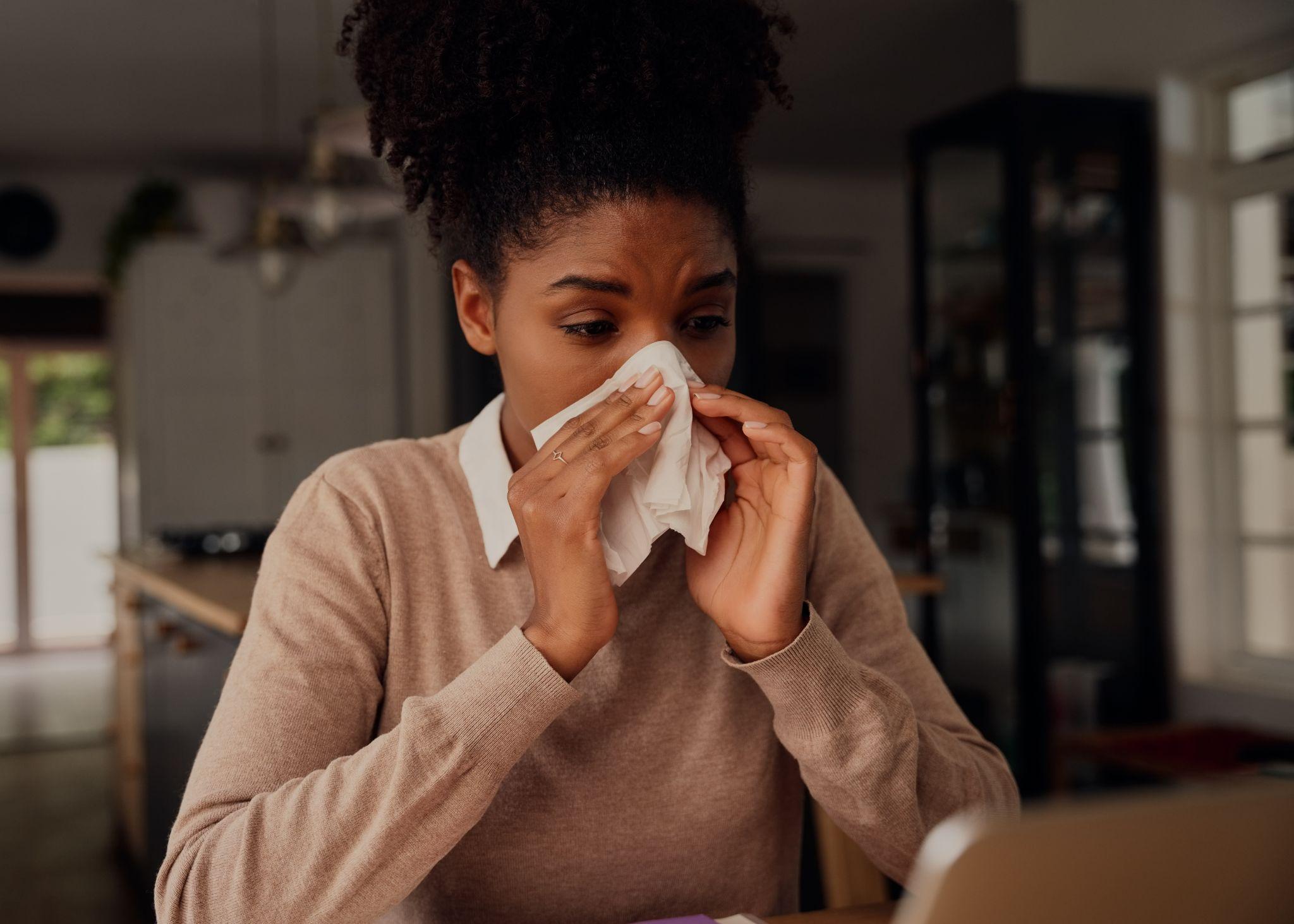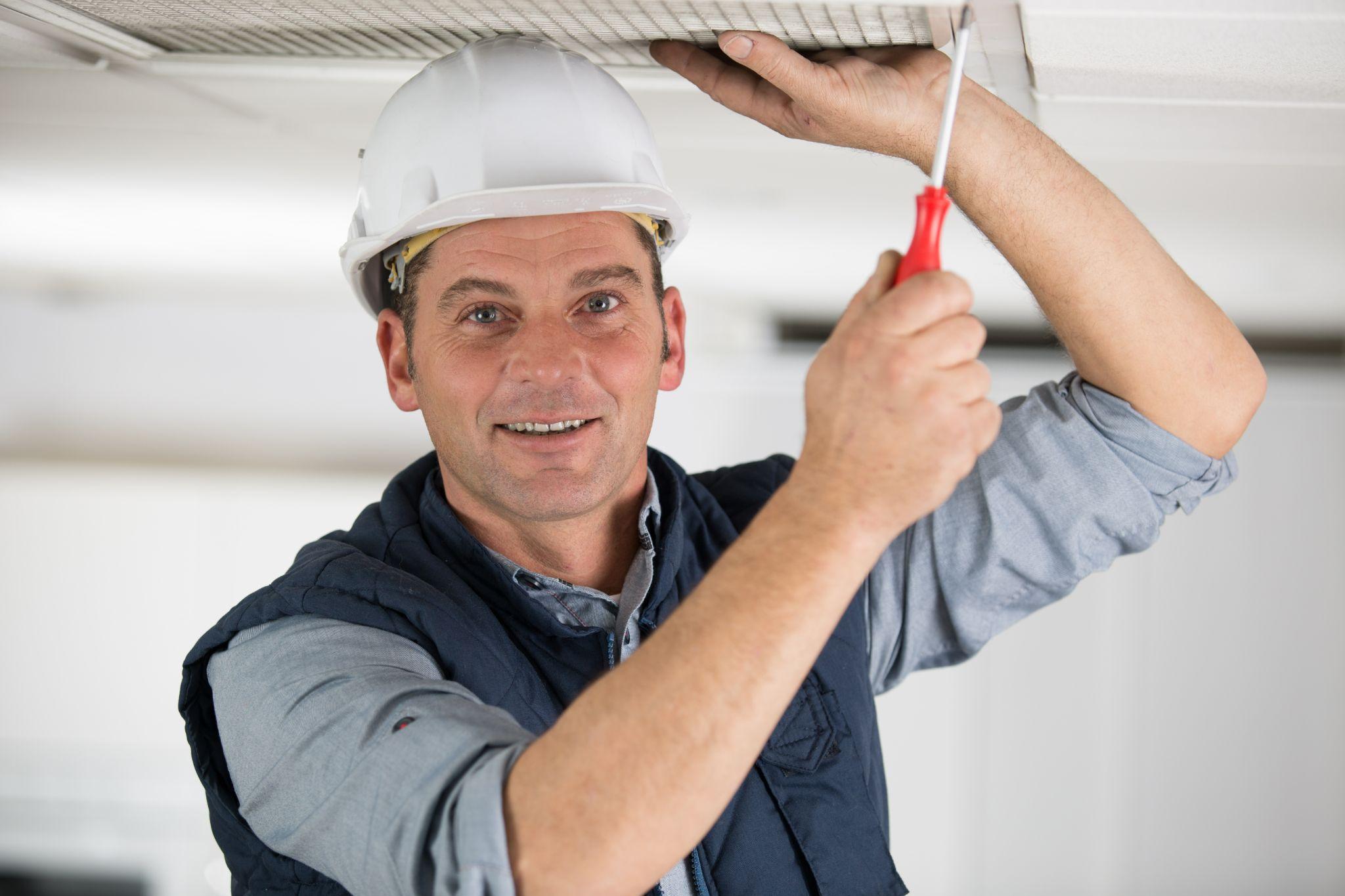How to Handle Allergies Inside Your Home

The last thing you want when trying to stay cool indoors from the hot, triple-digit temperatures in summer is to start coughing and sneezing because of allergies from your AC. Unfortunately, some people can experience air conditioning allergic reactions.
However, the allergic reaction is not from the cold air being blown into the house. Rather, it is caused by one or more allergens in the indoor air.
What Are Allergens?
Allergens are various types of harmless antigens that the body’s immune system perceives as a threat, so it triggers an immune system response, such as:
- Runny Noses
- Watery, Itchy Eyes
- Coughing
- Sneezing
What Are Some Common Allergens?
The most common allergens people are sensitive to include:
- Pollen
- Dust
- Mold
- Mildew
- Pet Dander
- Dust Mites
- Pollutants
- House Plants
- Chemicals Used in Household Cleaning Products
Reasons You Experience Allergies from Your AC Inside a Home
As cool air is circulated throughout your house, it easily spreads allergens to every part of the home. So, if you are sneezing, coughing, or experiencing other allergy symptoms, you need to track down the source of the allergens to determine how to best resolve the issue. Start by checking the following parts of your air conditioning system.
Is there an air filter in the air return, and is it dirty?
Running your air conditioning without an air filter is never recommended. Dust, dirt, and debris can get inside the cooling system. When it does, it can cause operational issues, shorten its lifespan, and spread the dust, dirt, and debris throughout the ductwork and the home, triggering your allergies.
When the air filter is dirty and not changed regularly, it can become clogged and no longer remove allergens from the indoor air. Therefore, you want to inspect your air filter monthly and change it whenever it is dirty.
What quality is the air filter?
Low-quality air filters will not filter out allergens that well. You want a decent air filter that does not restrict airflow yet can remove allergens from indoor air. To choose the best air filter for your AC system, ask your AC technician to recommend one.
Do you smell mildew when the AC is running?
If you do, chances are your home also has mold. Both mold and mildew thrive in humid environments, including inside your AC system. You should have your AC technician help find the source of the mold and mildew so it can be eliminated.
Do you have air leaks in your home?
Air leaks can occur around doors and windows, allowing pollen and other allergens to get inside. Another cause of air leaks is in your ductwork. You will want to resolve air leaks to prevent outside air from getting into the house.
When was the last time your AC system was serviced?
Regular maintenance is essential to help prevent problems that could contribute to allergens inside your home. For example, when the water drain on the AC is clogged, it can back up inside the unit, resulting in higher humidity levels that can lead to mold and mildew problems.
Your AC may also require cleaning to remove dust, dirt, and debris from the outside unit so that it doesn’t get into the system and into your home.
How Can Your HVAC Technician Help?

Your HVAC technician offers a range of services to help reduce and eliminate most allergens from your indoor air, including:
- Air Quality Inspections – You can find out what allergens and pollutants are in your air to determine what sort of solutions can help improve indoor air quality and reduce your allergies.
- Air Duct Cleaning and Sealing – Cleaning and sealing your air ducts will help remove and prevent problems with dust, dirt, and debris being circulated through the AC system.
- Allergen Reducing Air Filters – Getting a better air filter that helps remove allergens can improve indoor air quality and reduce your allergic reaction
- Dehumidifiers to Control Humidity Levels – Maintaining humidity levels helps prevent problems with mold and mildew.
- Air Purification Upgrades – Air purifiers, UV sterilization lighting, and special HEPA filters are some of the upgrades you might want to consider when you want to remove allergens from your home.
If you are experiencing air conditioning allergies inside your home and want help improving the indoor air quality to eliminate allergens, Christianson Air Conditioning & Plumbing can help. We can test your indoor air quality, clean and seal your air ducts, and make recommendations about what upgrades could benefit you and your family the most and provide you with the highest possible indoor air quality.
For further information or to schedule an appointment in San Antonio or the Austin Metro area, please feel free to call us at 512-246-5400 today.
Tags: Air Conditioning Allergies, Allergies from AC, Indoor Air Quality



Sorry, comments for this entry are closed at this time.